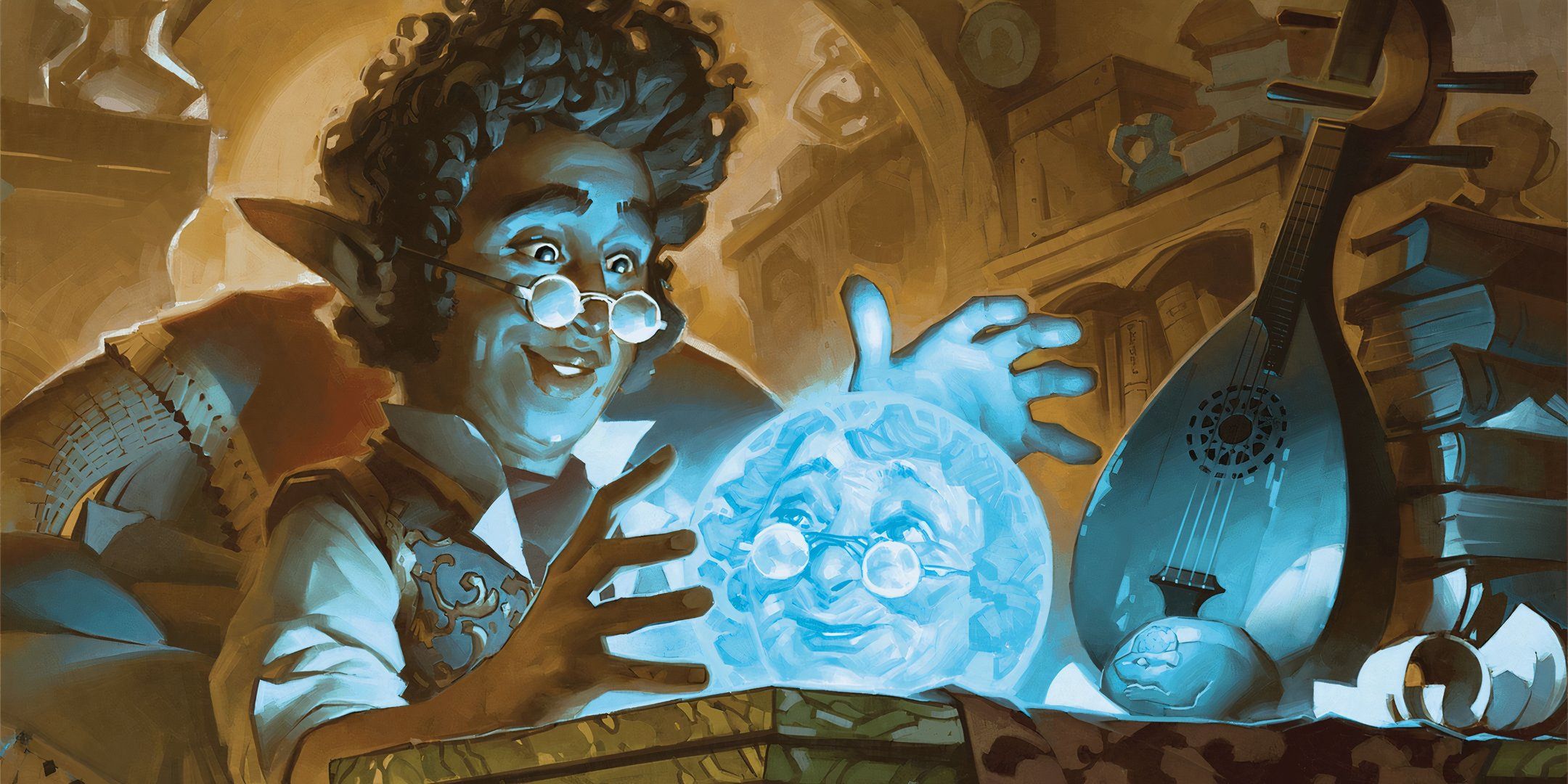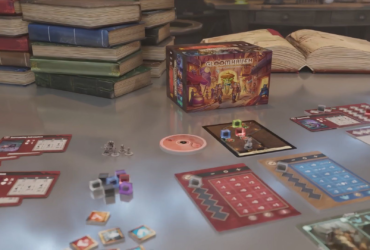Summary
- Cast spells for others to earn money based on the spell level for your adventuring party.
- Identify enchantments and sell the service to villagers or city-dwellers to receive a handsome reward.
- Scribe spell scrolls, provide wards, perform ceremonies, heal others, and send messages to make quick gold.
Making money in Dungeons & Dragons can prove imperative for long-running campaigns. If your Dungeon Master expects you to keep track of your own resources diligently, including food, money, and supplies, then making money is going to be especially important for your adventuring party. As a spellcaster, you can make money fast in several ways.

Related
Dungeons & Dragons: The 21 Most Useful Sixth-Level Spells, Ranked
We’ve put together the best sixth-level spells for wizards and casters in D&D, so you know which spells you should learn.
But, where should you start? If you’re wondering the best ways to convert your spellbook into a ton of GP for you and your entire party, we’ve got you covered. Here are the best tips and tricks to make money as a spellcaster in Dungeons & Dragons.
10
Cast Spells
It’s Your Bread And Butter
At the end of the day, the main thing you can do as a spellcaster to earn money is to cast spells for others. In Chapter Six of the 2024 Player’s Handbook, there’s even a breakdown of how much money you can expect to earn by performing various levels of spells in different kinds of settlements.
Though not surprising, the higher level of spell you cast, the more money you can expect to earn. If you’re a high-level spellcaster, non-magic users in cities might be willing to pay you thousands of GP for even a fourth level spell. So, be sure to talk to your DM about this option.
9
Identify Enchantments
What’s Going On Here?
Beyond just being able to cast spells, some villagers or city-dwellers may want you to identify certain magical enchantments for them. Whenever you’re investigating or exploring a town or settlement of some kind, ask around to see if any odd magical effects are going on nearby.
If there are, it’s possible local authorities or important NPCs might be interested in paying you to identify the enchantment. This may take several Arcana checks to accomplish, but with any luck, you’ll walk out with a handsome reward.
Write It All Down
In addition to casting spells, scribing spell scrolls is another easy way to make money as a spellcaster. In Chapter Six of the 2024 Player’s Handbook, there’s a handy chart that breaks down the cost of a spell scroll based on its level. Technically, these costs are for how much money it takes to craft the scroll, but it should work in reverse as well.

Related
Dungeons & Dragons: The 22 Most Useful Third-Level Spells, Ranked
There are plenty of useful third-level spells in D&D, it all depends on how you use them. But these are the ones that stand out.
This is all part of the process of crafting, so DMs should allow you to partake in this process. The only downside to this process is that scribing spell scrolls takes a decent amount of time. For example, if you want to scribe an 8th level spell scroll, it’ll take 60 days.
7
Provide Wards
The Best Offense
While this does technically fall under the purview of spellcasting in general, you can also offer city dwellers and eccentric nobles additional protection with certain spells like Glyph of Warding. Because spells like this last until dispelled or triggered, you can create a Glyph of Warding, sell it, and then be on your merry way.
Plus, there’s a lot of flexibility on offer in terms of the way these spells work, so you can always talk to your DM about customizing a Glyph like this to suit a certain buyer’s needs. Other magical defensive spells, which last for shorter periods of time, could be sold as well.
6
Perform Ceremonies
I Now Pronounce You…
This next tip is specifically for divine magic users like clerics and paladins. When visiting settlements, you can ask around to see if anyone is in need of ceremonial rites being performed. This can offer several advantages.
The spell Ceremony, found in Xanathar’s Guide To Everything, allows paladins and clerics to marry people, perform funeral rights, or bless water. Some settlements might even pay you to perform such services, though a greedy cleric or paladin may seem a bit out of place.
5
Heal Others
It’s The Least You Can Do
Similar to performing ceremonies, paladins, clerics, druids, and any other spellcasters who have access to healing magic, can offer healing services to those in need. Whenever you’re in a settlement, it’s not a bad idea to see if there are any hospitals, temples, or other places in need of healing hands.

Related
Dungeons & Dragons: 12 Combat Tips For Players
Combat can prove challenging in Dungeons & Dragons. That is, unless you’ve got these tips and tricks on your side.
Of course, depending on your alignment, asking for money in exchange for healing services might push you into more neutral territory than good, so use this option sparingly. Or, if you’re willing to bend your alignment, this can be a great way to earn some gold fast.
4
Send Messages
Hello, Operator?
There are a few very specific spells like Message and Sending that can be of great use to common folk who might not have access to magical means of communication. This is particularly true of nobility or merchants, who might have ventures going on across continents or realms.
If you run into an NPC in need of some planar communication, offer them the usage of a Sending spell or Message spell. Though this definitely has its limits in terms of your available spell slots, it’s a relatively harmless way to earn money through spellcasting.
3
Tricks Of The Trade
You Sly Dog
This next tip is for more nefarious spellcasters, and those with a more questionable alignment. If you’re on the streets of a sprawling metropolis, there’s no reason why you can’t use your magical prowess to trick passersby with games of chance.
Embrace your inner con-artist fantasy by setting up a card or dice game, using minor cantrips and spells like Thaumaturgy or Minor Illusion to trick players into losing. Just be careful not to get caught, lest you wind up using more spells to break yourself out of jail.
2
Teach Magic
Spread Your Wisdom
This approach may be a bit more nebulous, and you should definitely talk to your DM about it to see if it’s practical. But, if you’re a wizard who can teach your magical abilities to others, you can always offer your services as a professor in cities or even smaller settlements.

Related
Dungeons & Dragons: 13 Magic Items For The Whole Party
Want to make sure your entire party gets a magic item to use in Dungeons & Dragons? These are some of the best shared magic items around!
Even offering to teach a random NPC how to execute a relatively simple cantrip might be enough to earn you a few gold pieces here or there. Of course, some NPCs might not have that kind of money on them, so you might want to work on convincing nobles or wealthy characters of your prowess first.
1
Provide Teleportation
All Aboard!
Teleportation is a valuable resource in a Dungeons & Dragons campaign, and luckily, there are tons of teleportation-based spells for you to learn. While you can always offer one-time teleportation to NPCs via spells like Teleport or Plane Shift, you can also look into offering your services by creating more permanent means of transportation.
Creating a permanent teleportation circle takes a long time (365 days to be exact), but if you’re willing to put in the time, you can offer your services during downtime in a city to help create a permanent teleportation circle. The reward will likely be worth it.

- Original Release Date
-
1974
- Designer
-
E. Gary Gygax, Dave Arneson
- Player Count
-
2+





















Leave a Reply